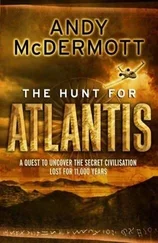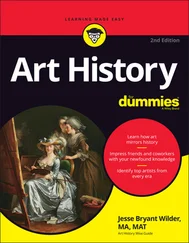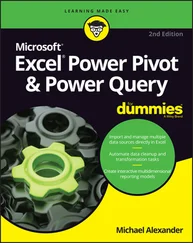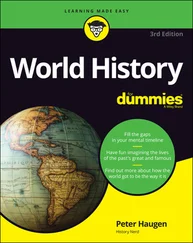 In the end, the middle classes had supported the decision of governments to send in troops against strikers to keep order and maintain public safety. However, they were furious about having to make such a choice at all. Colonial Australia wasn’t meant to be like that: Most people in Australia had spent 30 or so years proudly boasting that Australia was far too progressive to let things like that happen.
In the end, the middle classes had supported the decision of governments to send in troops against strikers to keep order and maintain public safety. However, they were furious about having to make such a choice at all. Colonial Australia wasn’t meant to be like that: Most people in Australia had spent 30 or so years proudly boasting that Australia was far too progressive to let things like that happen.
From the widespread disillusionment felt by many during the 1890s depression, a series of new factors emerged:
The union movement, which had seen its power largely broken in the strikes, decided it was time to form a political party, get voted into government and change the laws themselves to make them friendlier to workers. From this ideal, the Australian Labor Party was born (see Chapter 11) and, by the end of the first decade of the 1900s, had established itself as the dominant force in Australian politics.
Federation, the idea of forming a new country out of the old self-governing colonies, took on a new momentum after being kickstarted at the ‘people’s convention’ at Corowa on the Murray River in 1893. Federation succeeded largely as a powerful symbol of new unity — ‘a nation for a continent and a continent for a nation’ — which would help colonial Australians move beyond the divisions and struggles that had so divided sections of the community in the 1890s (see Chapter 11).
The idea of a newly federated nation became not simply an end in itself but a means to establish a ‘social laboratory’. Federation would allow Australia to insulate itself from the rest of the world and implement solutions to problems, such as worker–employer conflict and poverty. These problems were apparent in other modern nations (for example, in Britain, the US and France) and had recently become apparent in the colonies. Heavily restricting immigration (with the now-notorious White Australia Policy) and bringing in heavy tariffs (taxes, or customs duties) on overseas imports to protect local jobs and industries were both brought in during the first decade after Federation to achieve this insulation, as were many social reforms (see Chapter 12).
Now for War, Division, Depression and More War
At the start of the 20th century things looked good, really good, for the social laboratory of Federation, social harmony and Australian Labor. Then World War I hit. While the war provided a new national hero — the ‘digger’ soldier — and stories of national bravery, it proved to be a big disaster for Labor and the harmony of Australian society. This was followed, in seemingly quick succession, by the Great Depression and more war, with a brief period of big dreams during the 1920s.
Joining the Empire in the war
When World War I started, few Australians doubted that Australia would be in the war and on the side of Britain. But the war dragged on and on, with horrific casualty lists and a constantly rising number of deaths. Labor was in government, and had promised to fight ‘to the last man and the last shilling’ — before it became apparent that it actually might come to that. Unionists, who made up the bulk of Labor’s support, started to mutter loudly that fighting foreign wars on behalf of foreign capitalists wasn’t such a bright idea. Then, to make things worse, Ireland staged a rebellion in 1916.
 One of the biggest challenges in the Australian colonies had always been that its three main ethnic groups — English, Scottish and Irish, who had very long traditions of hating each other’s guts — were forced to live cheek by jowl with each other, something they had very little experience with elsewhere. But this integration had been the young nation’s greatest achievement.
One of the biggest challenges in the Australian colonies had always been that its three main ethnic groups — English, Scottish and Irish, who had very long traditions of hating each other’s guts — were forced to live cheek by jowl with each other, something they had very little experience with elsewhere. But this integration had been the young nation’s greatest achievement.
But Ireland, and Britain’s rule of it, had always been a touchy subject in Australia. Now, in the middle of world war, a rebellion broke out in Ireland and in Australia, support for Britain (read England) in the world war ceased to be unquestioned for many.
In the turmoil, the Labor Party split and lost government and spent most of the next 20 years as a political irrelevance, their one triumph the successful campaign against compulsory military service overseas. The ex–Labor prime minister, Billy Hughes, got huge support from the public for doing everything to win the war, and the Liberals, which he now led, claimed centrestage as the ‘natural’ choice for patriotic Australians.
Australia ended the war a far more divided and fractured place than it had been when the war began. The animosity felt between Irish Catholic Australians and the Anglo-Protestant majority would eat away at Australian unity for some 40 years. (See Chapter 13for more on Australia’s role during World War I and the tensions that emerged at home.)
Dreaming of ‘Australia Unlimited’
By the end of World War I, Australia was profoundly divided and strangely schizoid. Everything was jagged and everyone was on edge — the number of strikes and working days lost peaked just after the war. ‘Patriotism’ was a far more loaded term, with many ex-soldiers resenting ‘disloyals’, who were deemed to have not done everything to support Australia’s involvement in the war. Because these animosities often divided Australian society along religious, ethnic and class lines, the sense of rancour and of a nation divided was acute as the 1920s began.
Yet, the 1920s were also — in classic Charles Dickens ‘best of times, worst of times’ style — a period when Australia emerged as newly cocky about its prowess and capabilities on the world stage. Australia had ‘proved itself’ during World War I, and by the end of the conflict in 1918 had emerged as one of the elite fighting forces on the Western Front. A new expansive optimism began to prevail, which rekindled old dreams of exponential development and progress — and the ideal of ‘Australia Unlimited’ was born (see Chapter 14).
 During the 1920s, Australia was frequently compared to the US, a country which appears about the same size as Australia on the map, but which had begun its history some 200 years earlier. Many argued America had blazed a trail that Australia could be expected to follow and emulate, and big plans began to be hatched. Enormous migration schemes were implemented (bringing in British migrants) and rural development projects begun. All this was largely funded by masses of government overseas borrowing, mostly from Britain.
During the 1920s, Australia was frequently compared to the US, a country which appears about the same size as Australia on the map, but which had begun its history some 200 years earlier. Many argued America had blazed a trail that Australia could be expected to follow and emulate, and big plans began to be hatched. Enormous migration schemes were implemented (bringing in British migrants) and rural development projects begun. All this was largely funded by masses of government overseas borrowing, mostly from Britain.
Getting hit by the Great Depression …
After the dreams and excess of the 1920s came a doozie of a global economic depression, which began on the Wall Street stock market in New York and spread rapidly to take in most of the world. Australia, up to its eyeballs in debt at the same time as prices for its major export commodities such as wool and wheat were crashing through the floor, was acutely vulnerable.
When the economic crisis hit, the politicians and bankers proved themselves unable to agree on what measures should be followed. The Labor Party, which had the misfortune of regaining government for the first time since the end of World War I at about the exact same moment as Wall Street crashed, split for a second time within 20 years over the disagreement.
Unemployment trended upward to a peak of around 30 per cent. After the frenetic expansion years of the 1920s, and the pursuit of new enjoyments with new inventions such as automobiles, cinema and radio (see Chapter 14), ordinary people found themselves thrown back upon their own resources. Luxury items that had been considered essentials a few years previously were now eschewed, garden lawns were converted back to vegetable plots and broken items now found themselves being fixed rather than replaced. (See Chapter 15for more on life in Australia during the Great Depression.)
Читать дальше
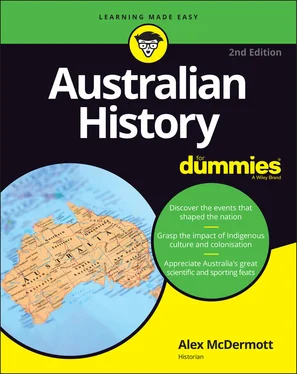
 In the end, the middle classes had supported the decision of governments to send in troops against strikers to keep order and maintain public safety. However, they were furious about having to make such a choice at all. Colonial Australia wasn’t meant to be like that: Most people in Australia had spent 30 or so years proudly boasting that Australia was far too progressive to let things like that happen.
In the end, the middle classes had supported the decision of governments to send in troops against strikers to keep order and maintain public safety. However, they were furious about having to make such a choice at all. Colonial Australia wasn’t meant to be like that: Most people in Australia had spent 30 or so years proudly boasting that Australia was far too progressive to let things like that happen. One of the biggest challenges in the Australian colonies had always been that its three main ethnic groups — English, Scottish and Irish, who had very long traditions of hating each other’s guts — were forced to live cheek by jowl with each other, something they had very little experience with elsewhere. But this integration had been the young nation’s greatest achievement.
One of the biggest challenges in the Australian colonies had always been that its three main ethnic groups — English, Scottish and Irish, who had very long traditions of hating each other’s guts — were forced to live cheek by jowl with each other, something they had very little experience with elsewhere. But this integration had been the young nation’s greatest achievement.